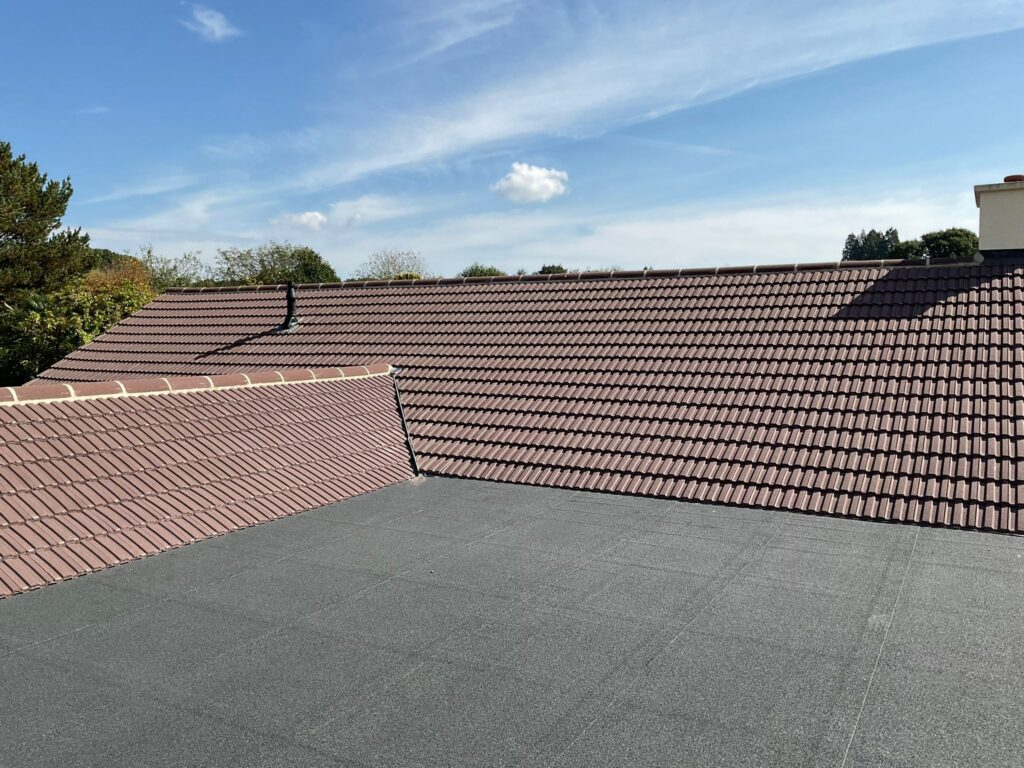Concrete roof tiles have long been a popular choice for homeowners and developers in the UK. Known for their durability, affordability and versatility, they are often recommended as a reliable option for pitched roofing projects. However, while concrete tiles offer many benefits, they may not be suitable for every type of roof.
At TRP Roofing Pocklington, we regularly advise customers throughout Pocklington, East Riding of Yorkshire, on the most appropriate materials for their specific roof structure. Here, we explore when concrete tiles are a great fit—and when alternatives may be more suitable.
Benefits of Concrete Roof Tiles
Before assessing suitability, it’s worth understanding why concrete tiles are so widely used:
- Long lifespan: Typically lasting 40–60 years with minimal maintenance
- Weather resistance: Excellent protection against rain, wind and frost
- Fire resistance: Concrete is non-combustible, providing added safety
- Range of styles: Available in various colours, textures and profiles
- Affordability: More cost-effective than many natural materials
For many properties in Pocklington and across the UK, these advantages make concrete tiles an attractive option.
Roof Types That Work Well with Concrete Tiles
Concrete tiles are ideal for many pitched roof styles, including:
Traditional Pitched Roofs
The standard pitched roof is well-suited to concrete tiles. The tiles interlock and overlap effectively to create a watertight seal on roofs with a sufficient slope.
Gable and Hip Roofs
Both gable and hip roofs benefit from the uniform appearance and robust weather resistance of concrete tiles. Their weight provides excellent wind protection on exposed sites.
Dormer Roofs
When installed correctly, concrete tiles can blend seamlessly with dormer roof extensions, maintaining visual consistency with the main roof.
Mono-Pitched Roofs
These single-slope roofs often use concrete tiles, provided the pitch is steep enough to allow for adequate drainage and tile overlap.
Limitations of Concrete Tiles on Certain Roof Types
While concrete tiles suit most pitched roofs, they are not the best fit for every scenario:
Flat Roofs
Concrete tiles are not suitable for flat roofs. These require a completely different system—usually felt, EPDM rubber, or liquid waterproof membranes—to prevent standing water and leaks.
Low-Pitched Roofs (Below 15°)
Concrete tiles require a minimum pitch to function effectively. On low-pitched roofs, water may back up under the tiles, leading to leaks and damage.
Lightweight Structures
Concrete tiles are heavier than many other roofing materials. If the existing structure is not engineered to support the weight, installing concrete tiles can cause strain or failure over time.
What to Consider Before Choosing Concrete Tiles
Before selecting concrete tiles for your project in Pocklington, East Riding of Yorkshire, it’s essential to have a professional assess your roof’s pitch, load-bearing capacity and exposure to the elements.
Things to evaluate:
- Roof pitch (is it steep enough?)
- Structural support (can it bear the weight?)
- Aesthetic goals (will it match the rest of the property?)
- Planning permissions or restrictions (in conservation areas)
At TRP Roofing Pocklington, we can carry out a full roof inspection and provide tailored advice to ensure the right roofing solution for your property.
Conclusion
Concrete roof tiles are a durable, cost-effective option for many pitched roofs, including gable, hip, and dormer styles. However, they are not a universal solution and should be avoided on flat or very low-pitched roofs, or on structures that cannot support their weight.
Homeowners in Pocklington, East Riding of Yorkshire, can rely on TRP Roofing Pocklington to offer honest, expert guidance and quality roofing installations using the most appropriate materials. If you’re considering a new roof or replacing your existing one, get in touch with us to discuss whether concrete tiles are the right fit for your property.
Call us on: 01759 486 280
Click here to find out more about TRP Roofing Pocklington
Click here to complete our contact form and see how we can help with your roofing needs.

